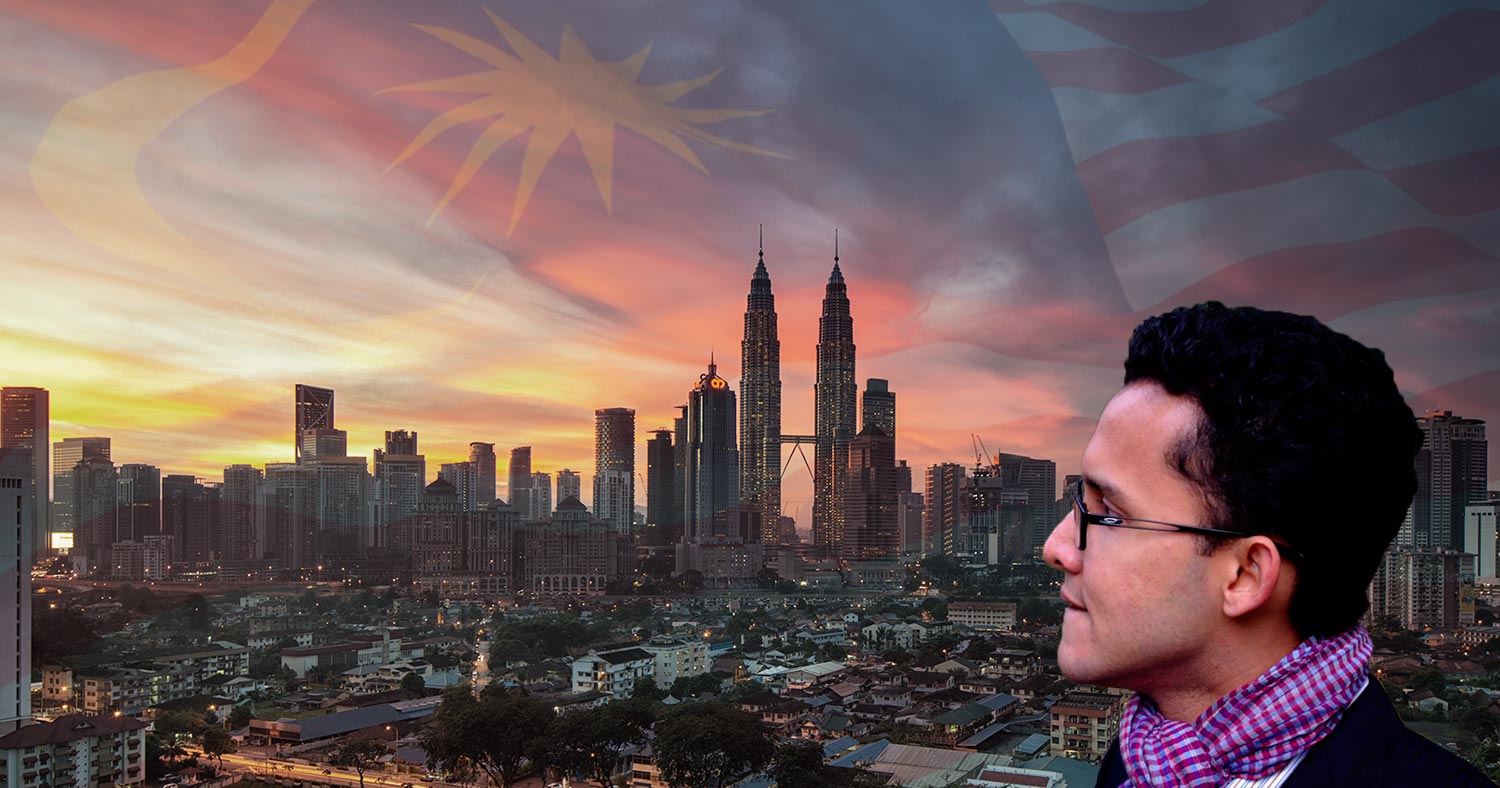
Does moving home help or hurt your career? A returnee weighs in
Leaving behind a career you have spent years building abroad in exchange for returning to your homeland is a hard decision to make. While many Malaysian professionals who return do so to be closer to their families, the prevalent misconception is that there are few opportunities for career advancement here in Malaysia.

Dr Helmy Haja Mydin, a consultant respiratory physician at Pantai Specialist Hospital in Kuala Lumpur chose to return during the height of his career in the United Kingdom (UK). “When it was time to make the decision, my wife and I looked at it from a number of perspectives, particularly that of our careers. We decided that the both of us were able to achieve more by returning home, considering the fields we are in are more matured in the UK,” he says.
Making full use of his experience gained abroad
Bringing positive change to people’s lives is Dr Helmy’s motivation to embrace the next stage of his career here in Malaysia. A firm believer of “giving back”, Dr Helmy is an associate of the Institute of Democracy and Economic Affairs (IDEAS), a think-tank that performs research and is involved in advancing policy including in several areas such as Healthcare.
“The ability to be involved in non-clinical work was one of the key factors of my decision to return to Malaysia,” says Dr Helmy, who came home under the Government’s Returning Expert Programme (REP).

Apart from pursuing his professional life and raising a family, Dr Helmy is actively involved in social work and participates in various volunteer programmes.
“I have always wanted to have a more fulfilling life outside of medical work. Upon returning, I realised there are many ways I can contribute that go beyond the Healthcare spectrum. Being able to strike that balance here, and put my knowledge and experience gained from abroad in a more meaningful manner is very important to me,” he explains.
Malaysia’s promising Healthcare industry
Although Dr Helmy has fond memories of his 14 years in the UK, he ultimately felt there were many opportunities waiting to be tapped within Malaysia’s growing Healthcare industry. While the UK is well ahead in terms of Healthcare developments, Dr Helmy believes the industry there has matured to the point that there is little room left for career progression in his area of expertise.
“The Healthcare industry in the UK is more mature. For many practitioners, work involves maintaining the status quo without much room for change. Looking at the long-term perspective, I believe Malaysia possesses many opportunities for professional growth which are driven by the country’s dynamic economic landscape,” said Dr Helmy.
He added, “Developed countries possess advanced laboratories and facilities to conduct research and innovation to move forward in the Healthcare industry. There are many who have the desire to return and grow their career locally, but you cannot disregard those who are in medical fields that require the technology and infrastructure that are only available overseas.”
Dr Helmy says that in the Healthcare industry, the option to return to Malaysia is to a great extent determined by an individual’s professional specialisation. However, medical practitioners should practise knowledge transfer among their peers who are in the country and overseas.
Citing stem cell research practitioners as an example, Dr. Helmy explains, “Those involved in these areas may not have the right infrastructure to further their careers in Malaysia, but what we can do is to collaborate and engage them as consultants to develop the necessary infrastructure to conduct their research at home.”
On building a talent pipeline comprising Healthcare professionals from both within and outside of the country, Dr Helmy says, “The public sector needs to set up a more proactive strategy to keep medical practitioners – no matter local or those overseas – well informed on opportunities available in Malaysia, as well as provide up-to-date information on the current state of infrastructure and resources available in the country.”
Do professionals with overseas experience have an advantage over their local peers?
A significant issue that undermines locally trained practitioners is the passive learning culture practised here in Malaysia. This is in stark contrast to the learning process found in more developed countries, which gives students the means to question and be an active participant in the classroom.
Dr Helmy explains, “When I started working as a junior doctor in the UK, I was very quiet. In fact, I was told off for not being vocal enough. It gave my consultants the impression that I was disinterested. A consultant of mine made it a point to challenge and to question me, allowing me to present my views to the point where I built up enough confidence.”
“With confidence, I was able to tell my consultants if they were wrong. One thing I really appreciated from my experience in the UK was the autonomy. I was treated as an equal whose ideas were valued and not just a junior doctor. There was a culture of inclusion and space to speak out, and this really does give you an advantage in developing your medical and soft skills.
“Communication skills, confidence, critical thinking skills, and adaptability are all crucial aspects in growing your career. I don’t think that medical practitioners from the West or those who have been trained overseas are automatically better than locally trained practitioners, but some of these aspects are given more emphasis during training in developed countries,” he adds.
When asked if he had any advice for other Malaysian Healthcare professionals abroad contemplating moving back home, Dr Helmy says, “An expert who has the opportunity to work alongside medical professionals overseas is able to excel in the Healthcare industry here, as long as they are willing to put in the extra effort and they believe in creating a robust Healthcare community. The sense of career fulfilment you achieve here, especially if you are able to contribute your expertise and overseas experience to your industry is a chance that you should not miss in your lifetime.”








